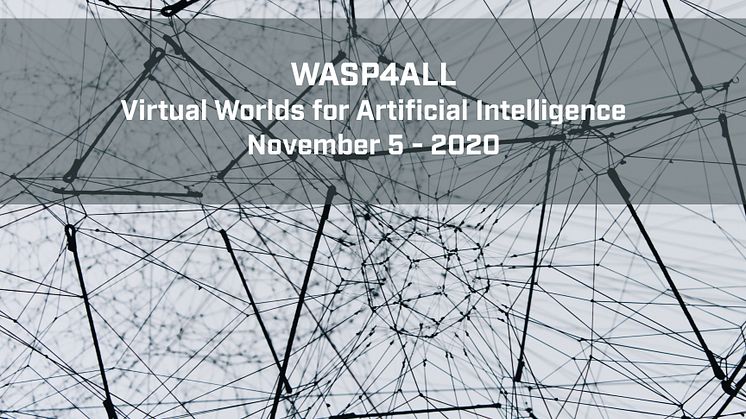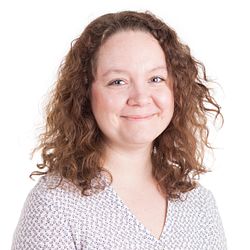
Pressmeddelande -
High-Profile Talks at WASP4ALL 2020
It is clear that the topic of this year’s WASP4ALL conference is most relevant to many researchers’ agendas, as 400 people signed up to learn more about Virtual Worlds for Artificial Intelligence.
– It is a topic spanning over a wide domain and has high relevance to both the academic and the industrial context. The talks really showed the depth of research in this area today, but also the need for continuous development, concludes WASP Director Anders Ynnerman.
More than 400 participants had registered for the WASP4ALL 2020 conference, held on November 5th. Speakers from both academia and industry highlighted the diverse usability of methods and tools for synthetic and virtual environments and data.
The first keynote of the day was broadcast live straight from Singapore. Professor Kuang-Kai Ma presented an exciting collaboration project between WASP and NTU Singapore, “Deep reinforcement learning of driving using virtual paths”. The presentation was accompanied by a live demonstration of the 3D replica maps of Singapore for the CARLA simulator, by PhD student Oliver Stromann from Linköping University.
This was followed by Professor Amy Loutfi, Örebro Unviersity, who talked about robots and tele-operators acting in social situations, and Stefan Gudmundsson from H&M, who presented how AI solutions can be used in the fashion industry. Annika Rantzer, Veoneer, shed the light on different aspects of artificial data and environments in traffic safety research and development. The companies Algoryx and Husqvarna presented their views of improved tools and methods of visualization and virtual environments for product development.
Two more presenters showcased research conducted in WASP. Kathlén Kohn, Assistant Professor in mathematics at KTH Royal Institute of Technology, who has investigated minimal problems in the field of computer vision, presented an introduction to the field and showed her promising results. Professor Jonas Unger, Linköping University, showed his world-leading methods of developing synthetic data for machine learning.
More international outlooks were given by Barbara Plank, Associate Professor at IT University of Copenhagen, who was talking about the historic and present use of Multi-Task Learning within Natural Language Processing. Fernanda Viégas from Google demonstrated several tools for benchmarking and methods of evaluating machine learning algorithms and datasets, which she and her team have invented. It is all open-source software, used internally at Google and also available online for general use.
The last presentation of the day was, just like the first session, streamed live from the other side of the world, but this time from the west coast U.S. Professor Trevor Darrell, UC Berkeley, argued for fully unsupervised and advisable learning through several use case examples.
Ämnen
Kategorier
The Wallenberg AI, Autonomous Systems and Software Program (WASP) is a major national initiative for strategically motivated basic research, education and faculty recruitment. The ambition of WASP is to advance Sweden into an internationally recognized and leading position in the areas of artificial intelligence, autonomous systems and software.

